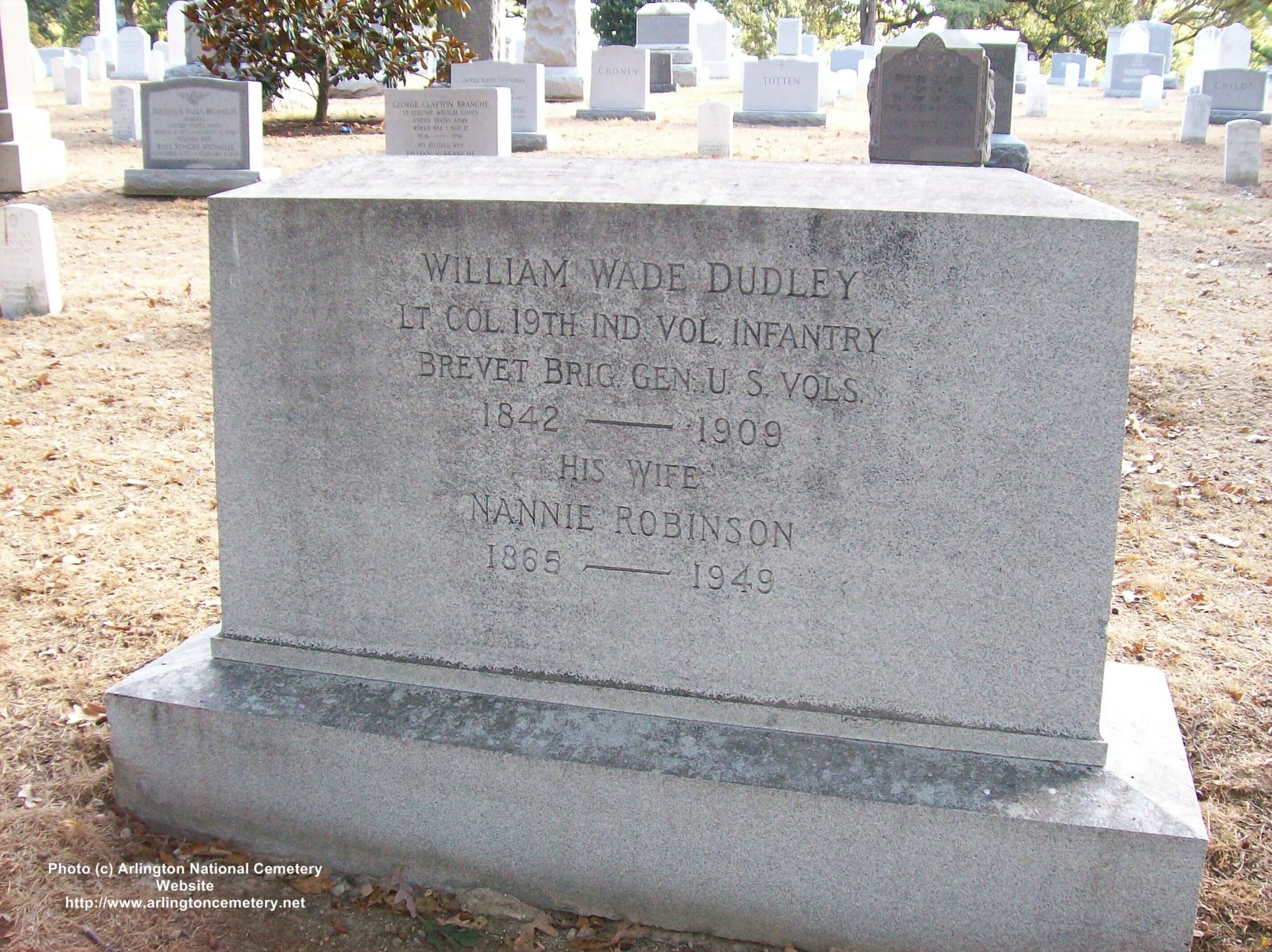William Wade Dudley of Vermont
- Captain, 19th Indiana Infantry, 29 July 1861
- Major, 18 September 1862
- Lieutenant Colonel, 8 October 1862
- Honorably discharged 30 June 1864
- Captain, Volunteer Reserve Corps, 25 March 1865
- Brevetted Major and Lieutenant Colonel of Volunteers, 13 March 1865 for distinguished service in the field
- Brevetted Colonel and Brigadier General of Volunteers, 23 June 1865 for gallantry in the battle of Gettysburg
- Honorably mustered out 30 June 1866
William Wade Dudley (1842-1909), born in Weathersfield Bow, Vermont, started life as a soldier in the American Civil War, then became a lawyer, a government official and a Republican campaigner.
After studying at Phillips Academy, Danville in Vermont, and at Russell Military Academy in New Haven, Connecticut, he joined the army as Captain of the Richmond City Greys in the 19th Indiana Volunteers of the famed Iron Brigade. After losing 79 percent of his men at the Battle of Gettysburg, and having his right leg amputated on the field, he served as an army inspector and judge advocate.
Following the end of the war he became a civilian lawyer in 1870, then the U.S. marshal for Indiana in 1879, commissioner of pensions under appointment of Presidents James Garfield and Chester A. Arthur in 1981. In 1888 he was appointed Treasurer of the Republican National Committee. He returned to practicing law in 1887. He married in 1864.
In 1888 having been made Treasurer of the Republican National Committee, Dudley was involved in the 1888 elections and one of the most intense political campaigns in decades, with Indiana dead even between Democrats and incumbent, President Grover Cleveland – and Republican challenger Benjamin Harrison.
Although this job did not strictly involve him in state politics, Dudley wrote a circular letter to Indiana’s county chairmen, telling them to “Divide the floaters into blocs of five, and put a trusted man with the necessary funds in charge of these five, and make them responsible that none get away and that all vote our ticket,” and promising adequate funding for this.
Unfortunately for the Republicans, the Democrats managed to get hold of the letter and they distributed hundreds of thousands of copies in the last days of the campaign. Given Dudley’s unsavory reputation, few people believed his denials.
A few thousand “floaters,” who would sell their vote for $2 did exist in Indiana. But since the Democrats were also involved in buying votes they always divided 50-50 (or perhaps, $5000-$5000) and thus had no visible impact on the result. The attack on “blocs of five” with the suggestion that pious General Benjamin Harrison was trying to buy the election did enliven the Democratic campaign, and stimulated the nationwide movement to replace ballots printed and distributed by the parties with the secret ‘Australian ballot’. Benjamin Harrison’s electoral votes topped Cleveland’s to win the election.
DUDLEY, WILLIAM W
- LT COL/ 19TH IND INF US VOLS
- DATE OF DEATH: 12/15/1909
- BURIED AT: SECTION OFF W SITE LOT 800
- ARLINGTON NATIONAL CEMETERY
Michael Robert Patterson was born in Arlington and is the son of a former officer of the US Army. So it was no wonder that sooner or later his interests drew him to American history and especially to American military history. Many of his articles can be found on renowned portals like the New York Times, Washingtonpost or Wikipedia.
Reviewed by: Michael Howard

